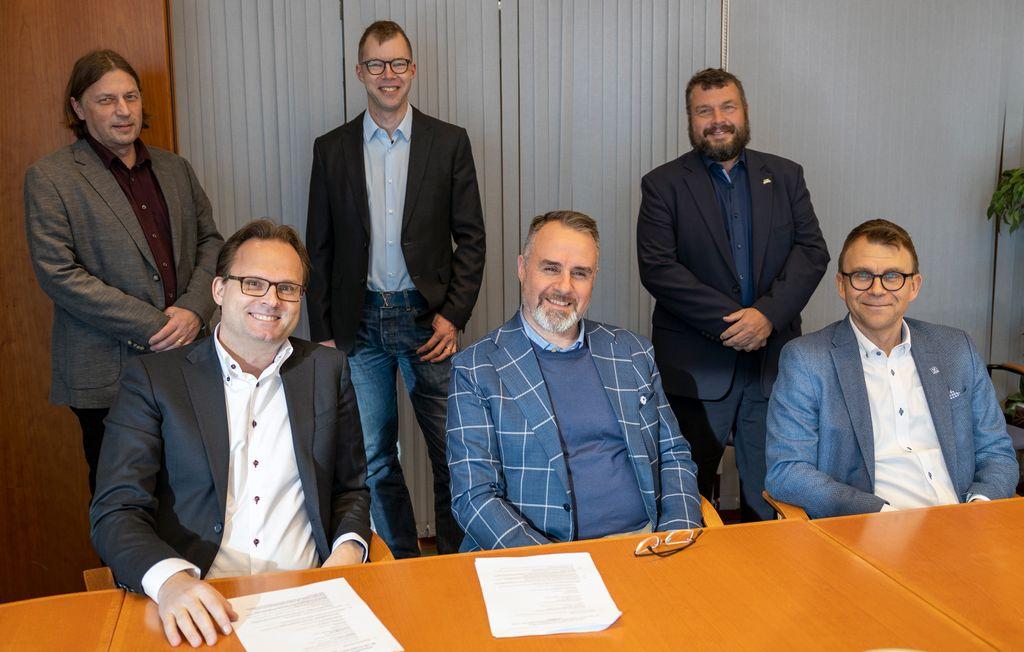The Finnish Transport Infrastructure Agency and Kreate have signed the development stage alliance agreement for the Highway 180 Kirjalansalmi and Hessundinsalmi bridge renovation project, which will be one of the most demanding bridge contracts in Finland.
In the partnership-based alliance model, the Finnish Transport Infrastructure Agency and Kreate set up a joint project organisation. Besides the joint project organisation The Finnish Transport Infrastructure Agency and Kreate will set share facilities and goals, and have commonly approved cost targets. A unanimous decision is sought from all the parties regarding all the questions, and all the risks and rewards are also divided according to an agreement made in advance.
One of the most demanding bridge projects in Finland
The renovation of the bridges that cross two different straits along Saaristotie in Parainen is a technically demanding project. New bridges will be built next to the existing ones, which are the only road connection to the area. A cable-stayed bridge with a total length of more than 600 metres and a maximum span of some 250 metres will be constructed across the Kirjalansalmi strait. A cable-stayed bridge of the same magnitude was last completed in Finland nearly 30 years ago. A nearly 300-metre bridge with a maximum span of some 100 metres will be built in Hessundinsalmi. The old bridges will be dismantled once the new ones have been completed.
– The signed agreement demonstrates that Kreate’s technical expertise and capabilities for collaboration are valued. We are proud to be able to execute this exceptionally demanding bridge project together with the Finnish Transport Infrastructure Agency and leading experts, says Sami Rantala, Kreate’s Vice President for Bridge Construction and Repair.
Large industrial facilities operate behind the bridge connections, and the functionality of the bridges and the availability of routes for even heavier transport is of utmost importance to them. These transports, like other traffic, must run as seamlessly as possible throughout the entire construction.
Developing and executing together
An alliance project is always executed in two stages – the first being a development stage where the execution is planned, detailed construction plans are created and the cost targets are agreed on.
– The execution decision is only made after this. The basic principles of the alliance are transparency, trust, commonly agreed division of risks, shared responsibility, and shared decision-making in the interests of project. The negotiation process that preceded this agreement has helped us to confirm that we have the correct expertise for the project and that the prerequisites for an open, confidential collaboration are in place, says Project Manager Janne Wikström from the Finnish Transport Infrastructure Agency.
– Compared to a traditional tendering process, the negotiation process is a positively different way to start a building contract. It requires that the contractor takes a different attitude, shows its commitment and demonstrates strong competence already at the tendering stage. It is important that the contractor is involved in planning the execution starting from the initial steps of the project. This ensures that the contractor and client have a shared goal and vision regarding how the target can be reached, says Jaakko Kivi, Vice President of Kreate’s Technical Office.
In particular, the alliance model’s close collaboration between the parties is employed in order to allow the project to run smoothly as well as to allow for innovative solutions and cost savings.
The development stage will be followed by the execution stage. The aim is for the construction of the Kirjalansalmi and Hessundinsalmi bridges to begin at the latest on 1 January 2023.
The purpose of the Highway 180 Kirjalansalmi and Hessundinsalmi bridge renovation project is to secure the only road connection to Pargas and Turku archipelago and keep it in even better condition. It will also make HCT transport possible for the nationally significant industry located in the area. Moreover, the project supports the development of the Pargas business life and land use, and provides better traffic safety and living comfort. The cost estimate for the project complex is EUR 128 million.
